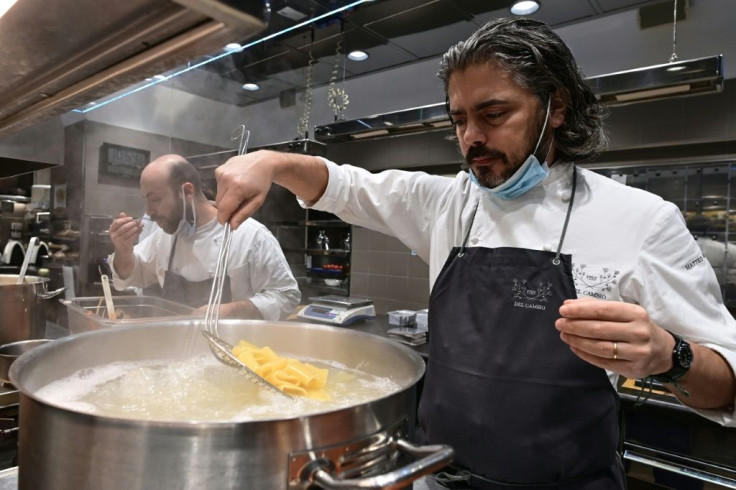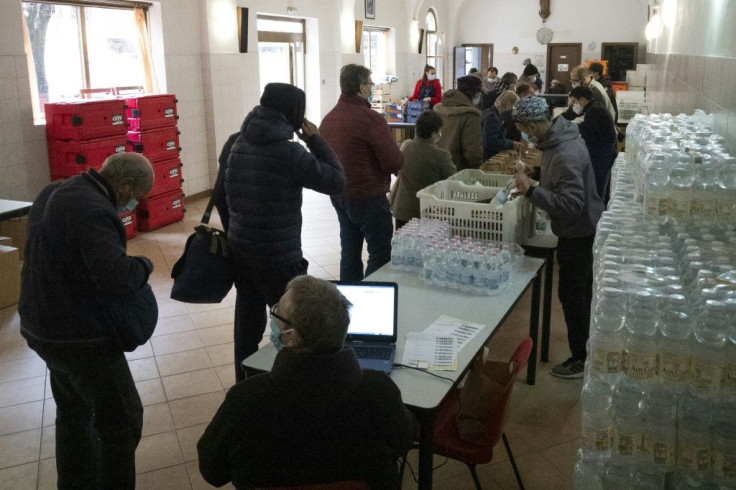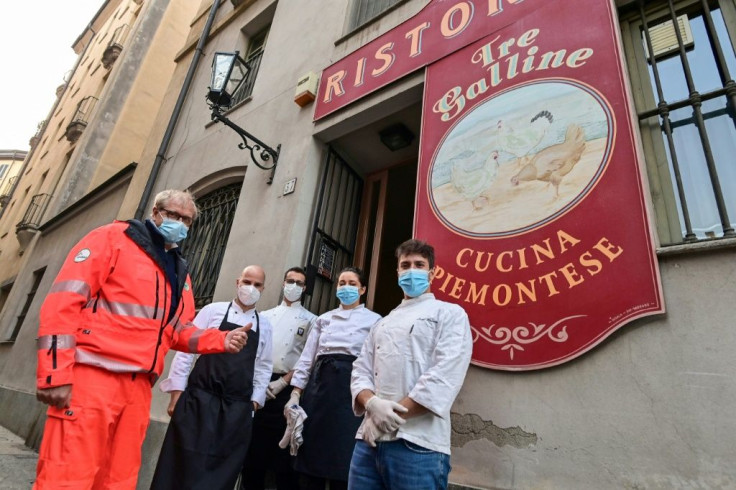Turin Restaurants Unite To Serve Italy's Needy
In the kitchen of the Michelin-starred Del Cambio restaurant, chef Matteo Baronetto fusses over a boiling vat of paccheri -- fat pasta tubes to be immersed in a light tomato sauce.
But the delicious meals will not be served to patrons of this historic eatery in the Italian city of Turin, which is shut because of the latest coronavirus restrictions. Instead, they will be handed out to those in need.

Baronetto is part of the "Solidarity Kitchens" project, a network of 21 restaurants, volunteers and charities in the northern city that has served up about 35,000 meals since it began in late March.
Project coordinator Andrea Chiuni, head chef of the Tre Galline ("Three Hens") restaurant, said it did not take a lot of extra effort for professional chefs to whip up a simple, nutritious meal, even for hundreds.

"Above all, the cooks on our team are so happy to belong to this movement," he told AFP. "It's harder to get them to stay another 30 minutes for clients than to stay longer to do this."
The idea of restaurants cooking for the poor during the pandemic has been replicated elsewhere in Italy and throughout the world.
But perhaps nowhere else is it as organised as in Turin, which hopes the idea can be sustained and even expanded.

The gamut of participating restaurants -- whose chefs and staff donate their time and often use donated ingredients -- runs from simple trattorias and restaurants serving ethnic food to Turin's haute-cuisine institutions.
They began during Italy's national lockdown earlier this year, and have continued when new regional restrictions were imposed, a response to a surge in cases that has seen the death toll pass 50,000.
Their kitchens churn out meals like pasta with bechamel sauce, baked Savoy cabbage with cheese or other simple, protein-rich meals.
Once finished, volunteers take the meals to groups that distribute them, including an order of Franciscan monks, and the lay Catholic association Sant'Egidio.
Priest Mauro Battaglino of the Order of Friars Minor said more than 400 people were lining up each day at his premises -- double the number before the pandemic.
"After the lockdown the problems continued," he said, citing people who lost their jobs or part-time work, as well as the homeless relying on handouts now reduced due to the lack of street traffic and tourists.
"I don't see this ending soon."
© Copyright AFP 2024. All rights reserved.





















